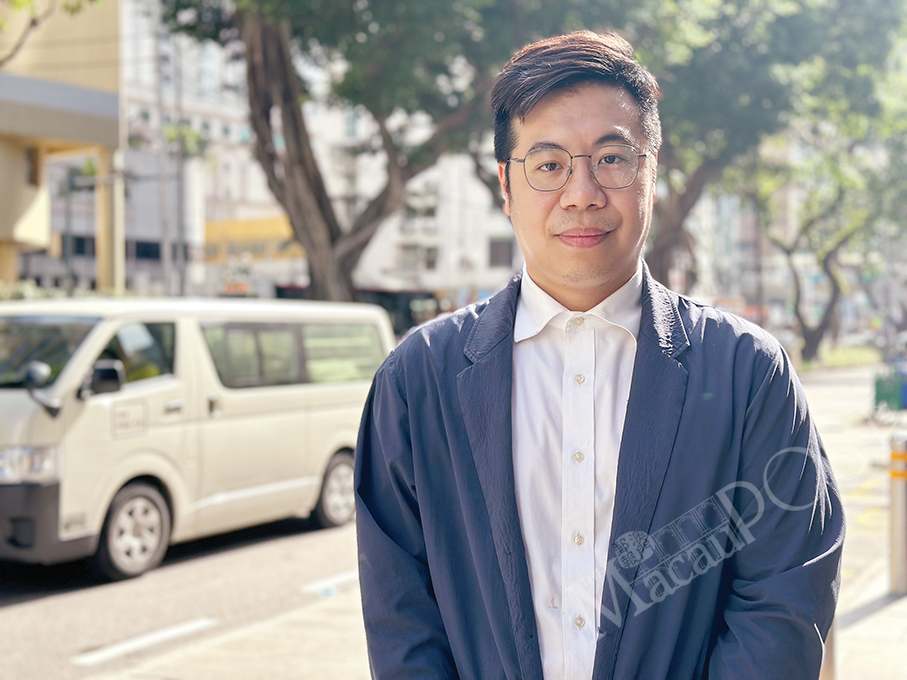A number of residents commented yesterday on the Macau government’s recent easing of COVID-19 curbs, after its three years of fighting the novel coronavirus in line with the central government’s dynamic zero COVID policy.
The adjustment has allowed the virtually unabated transmission of the virus in the community. Most interviewees described it as a “sudden policy shift”, and said the government seemed ill prepared for the fast-changing epidemic situation.
The government has warned that with the new anti-COVID-19 landscape in place, between 50 to 80 percent of the population are eventually expected to contract the virus – the more transmissible yet less virulent Omicron variant of the novel coronavirus.
‘It’s so unprepared’
Commenting on this month’s reopening of the city’s borders nearly three years after the government had imposed strict restrictions to prevent imported novel coronavirus infections, a male resident surnamed Lau said the government’s preparation was not enough, and the relaxation was too quick for people to react, as the medical resources such as A&E and ICU beds were not enough for the rapid burst of COVID-19 virus infections in the community.
Lau criticised the local government for abandoning the pandemic prevention and control measures by saying the government was now “lying flat “and the local shops could also do nothing but “lie flat” as their staff got infected, while COVID-19 patients literally were “lying flat” in bed as well.
In Putonghua “lying flat” is “tang ping”, which means doing the bare minimum to get by and stiving for nothing more than what is absolutely essential for one’s survival.
Lau said some elderly people, a 90-year-old in particular, had contracted the virus and had to wait for 12 hours to see a doctor in the emergency department in Kiang Wu Hospital. Lau thought the waiting time was too long for the elderly, “there are not enough medical and nursing staff”, Lau added.
Lau said he was also concerned that the virus could mutate or that there could be multiple variants of the virus spreading in Macau, with an uncertain impact on locals.
‘Hard to adapt to it’
A female resident aged 24, surnamed Kwok, said she was disappointed with the government’s handling of the latest outbreak, as it should have been prepared with more medicines and medical resources during the three-year pandemic prevention and control period.
Kwok said that the COVID-19 virus was “just a flu”, so she did not go to hospital and her family had collected the government-provided anti-COVID-19 kits. She said that some of her friends had kits without antipyretics (fever reducers)and only had facemasks, and it turned out that they had to rely on themselves to buy medicines to get through their infection with the virus, but unfortunately, the medicines had been sold out by then.
“There was no buffer period, making it difficult for people to adapt,” Kwok said, adding that the government did not respond adequately and the medical system and medical supplies were not well stocked enough.
Kwok said she would make Hong Kong her first destination after the recent entry relaxations and, because she was “not rich”, she chose to visit some friends in Hong Kong where she does not need much money to spend.
‘Should’ve been earlier’
A female resident surnamed U said the relaxation of the curbs should have been carried out earlier because three years of pandemic prevention and control had “yielded no results”.
“If the idea was to get everyone infected, why not just do it sooner?” she asked rhetorically, adding that three years of efforts had been wasted, such as urging people to get vaccinated or having strict restrictions on entry policies.
U added that other countries or regions have opened their borders, “and we are already late”, pointing out that Macau has been slower than other regions in terms of easing its pandemic prevention and control measures.
‘You can’t have it both ways’
A female resident surnamed Wong said she thought it would eventually turn out to be what it is at the moment because the previous “dynamic zero-COVID” policy aim couldn’t be sustained for too long. What should be more of a concern was how the government has handled the shift from its dynamic zero-COVID policy to the current relaxation, she said.
Wong said she thought the government looked like it was doing things “blindly” with its sudden relaxation of restrictions which has resulted in a large number of people being infected with COVID-19 “all of a sudden”, while there were not enough beds in local hospitals.
Wong said that her friend who is pregnant and caught COVID-19 could not get immediate help at the hospital and had to wait in a long queue for medical treatment.
Wong said the government should have relaxed the COVID-19 prevention and control policies step by step, instead of doing it in a way that “jumped from 0 to 100”.
According to the new measure, arrivals are only required to display a 72-hour negative nucleic acid test (NAT) result when boarding a Macau-bound aeroplane, ferry or vehicle.
Wong said she doubted whether the NAT result is necessary, as within Macau the government no longer checked people’s health code or venue code.
Overall, she concluded that no matter what the government did, there would still be criticism, saying that when it axed the city’s entry restrictions, some people criticised the government for not handling the matter properly and allowing different variants of the COVID-19 virus to spread in Macau, but while the tight entry restrictions remained in place, people used to complain that Macau was so backward in responding to the COVID-19 situation.
“You can’t have it both ways anyway,” she said.
This photo taken yesterday afternoon shows the area where the vox pop interviews took place.
– Photo: Ginnie Liang









